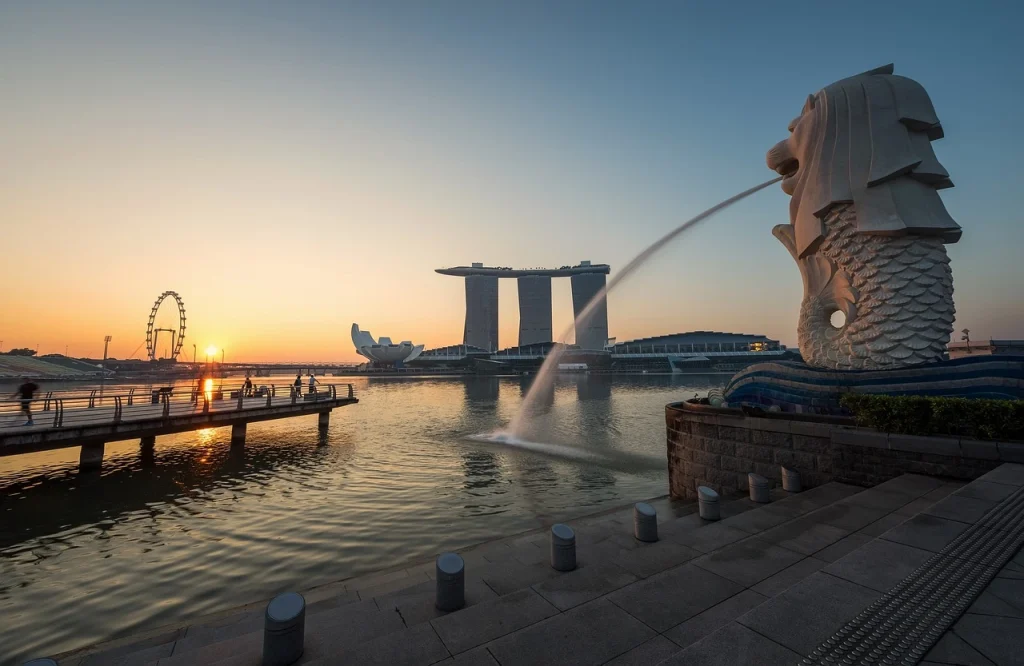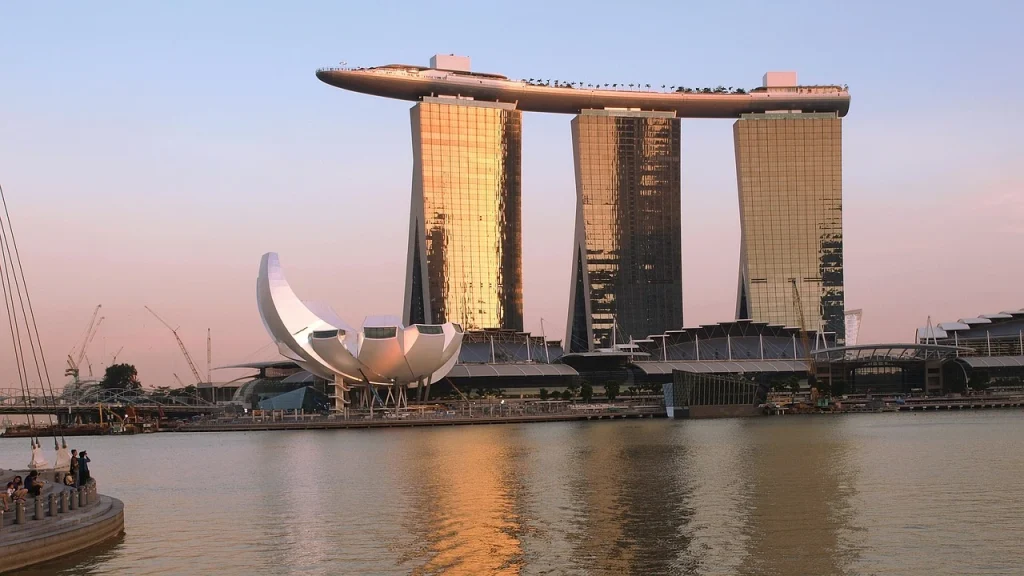WORK VISA SINGAPORE
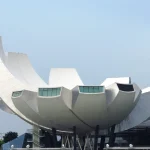
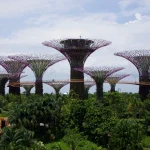
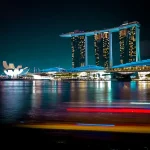

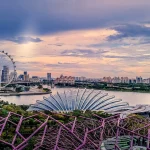
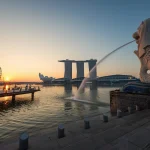
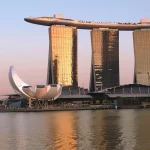
WORK IN SINGAPORE
Work In Singapore | Singapore Work Visa | Singapore Work Permit | Working in Singapore | Different Singaporean Work Visas | Temporary Singaporean Worker Visas | Employment In Singapore | Types of Visas for Temporary Employment in Singapore
Navigating Professional Horizons: The Scope and Prospects of Working in Singapore
Singapore, a global financial hub and melting pot of cultures, has established itself as a premier destination for professionals seeking both career opportunities and a vibrant lifestyle. In this blog, we’ll delve into the scope and prospects of working in Singapore, shedding light on the various Singaporean work visas and the opportunities they offer for individuals looking to build a rewarding career in the heart of Southeast Asia.
Scope and Prospects of Working in Singapore:
Singapore’s dynamic job market spans various industries, including finance, technology, healthcare, and logistics. The city-state’s strategic location, political stability, and commitment to innovation make it an attractive option for professionals globally. Working in Singapore not only provides access to diverse career opportunities but also offers the chance to experience a unique blend of modernity, cultural richness, and economic dynamism.
Different Singaporean Work Visas:
To work in Singapore, individuals typically require a work visa. There are several types of Singaporean work visas, each designed for specific purposes and categories of workers. Some of the most common ones include:
Employment Pass (EP): For professionals, managers, executives, and specialists with a job offer in Singapore. The EP is typically valid for one to two years, renewable.
S Pass: Aimed at mid-skilled workers with a job offer in Singapore. The S Pass is subject to a monthly qualifying salary and is generally valid for up to two years, renewable.
Work Permit: For semi-skilled or unskilled foreign workers in specific sectors such as construction, manufacturing, and services. Work permits are typically issued for up to two years, depending on the sector.
Temporary Singaporean Worker Visas:
Apart from the above, there are temporary worker visas designed for specific industries or purposes:
Training Employment Pass (TEP): For foreign professionals undergoing practical training in Singapore.
Dependent Pass (DP): Allows the dependents (spouse, children) of Employment Pass or S Pass holders to live in Singapore.
Work Holiday Pass (WHP): Allows young graduates and students from specific countries to work and holiday in Singapore for a limited period.
Employment in Singapore: Key Considerations
Job Offer: Most Singaporean work visas require a job offer from a Singaporean employer. Employers must be registered with the Ministry of Manpower (MOM).
Qualifications and Experience: For Employment Pass and S Pass, individuals must meet certain qualifications and experience criteria. MOM evaluates the individual’s educational background and professional experience.
Monthly Salary Requirements: Both Employment Pass and S Pass have minimum monthly salary requirements. The specific threshold depends on the applicant’s qualifications and experience.
Health Insurance: Employers are responsible for providing medical insurance coverage for their employees in Singapore.
Professional and Personal Development: Singapore encourages continuous learning and skills upgrading. Professionals can explore various training programs and certifications to enhance their skills.
Working in Singapore offers a dynamic and enriching experience, combining professional growth with a high quality of life. Navigating the Singaporean work visa landscape requires careful consideration of qualifications, job prospects, and the specific visa category that aligns with career goals. As professionals embark on their journeys to work in the Lion City, the scope and prospects of a successful and fulfilling career in Singapore unfold as a gateway to unparalleled professional growth and a life enriched by the unique blend of Eastern and Western influences.
Singapore: The Lion City Roars with Opportunity – A Comprehensive Guide to Working in the Urban Oasis
Singapore, a bustling metropolis nestled in Southeast Asia, has earned its reputation as a global economic powerhouse. In this blog, we will explore the dynamic landscape of working in Singapore, from the iconic skyline of Marina Bay to the cultural richness of Little India, and unravel the intricacies of Singaporean work visas, providing a gateway to professional success in this urban oasis.
Singaporean Work Visas – Navigating the Path to Professional Triumph:
1. Employment Pass (EP):
Overview: The Employment Pass is designed for foreign professionals, managers, executives, and specialists seeking employment in Singapore.
Key Features:
1. Applicable to individuals with a job offer in a managerial, executive, or specialized role.
2. Duration varies based on the individual’s employment contract.
2. S Pass:
Overview: The S Pass is targeted at mid-skilled workers employed by companies operating in Singapore.
Key Features:
1. Aimed at individuals with relevant qualifications and work experience.
2. Duration is typically two years, renewable.
3. Dependent Pass (DP):
Overview: The Dependent Pass is for family members of Employment Pass or S Pass holders, allowing them to stay in Singapore.
Key Features:
1. Applicable to legally married spouses and unmarried children under 21 years old.
2. Duration is tied to the validity of the main pass holder’s pass.
4. Work Permit:
Overview: The Work Permit is designed for semi-skilled or unskilled foreign workers in certain sectors.
Key Features:
1. Applicable to foreign workers in construction, manufacturing, marine, process, or services sectors.
2. Duration varies based on the sector and specific requirements.
Employment in Singapore – The Urban Oasis of Opportunities:
1. Finance and Business Services:
1. Financial District: Singapore is a global financial hub, with its Central Business District hosting multinational banks, financial institutions, and fintech companies.
2. Professional Services: Opportunities abound in consulting, legal services, and other professional fields.
2. Technology and Innovation:
1. Tech Hub: Singapore is emerging as a regional tech hub, attracting professionals in software development, artificial intelligence, and cybersecurity.
2. Start-up Ecosystem: The city-state fosters a vibrant start-up ecosystem, providing opportunities for entrepreneurs and tech enthusiasts.
3. Healthcare and Biomedical Sciences:
1. Biomedical Hub: Singapore’s Biopolis is a renowned research and development hub, attracting professionals in biomedical sciences, pharmaceuticals, and healthcare.
2. Healthcare Excellence: The country’s healthcare system offers opportunities for medical professionals, researchers, and healthcare administrators.
4. Tourism and Hospitality:
1. Marina Bay Sands: The iconic Marina Bay Sands integrated resort is a testament to Singapore’s thriving tourism industry, providing opportunities in hospitality, tourism, and entertainment.
2. Cultural Districts: Areas like Chinatown, Little India, and Kampong Glam offer unique cultural experiences and contribute to the diversity of the tourism sector.
Types of Visas for Temporary Employment:
1. Employment Pass (EP):
1. Highly Skilled Professionals: Geared towards foreign professionals in managerial, executive, or specialized roles.
2. Renewable: Subject to the terms of employment.
2. S Pass:
1. Mid-Skilled Workers: Intended for mid-skilled workers with relevant qualifications and experience.
2. Sector-Specific: Availability is subject to sector quotas.
3. Dependant Pass (DP):
1. Family Members: Issued to legally married spouses and unmarried children under 21 years old.
2. Tied to Main Pass Holder: Duration is linked to the validity of the main pass holder’s pass.
4. Work Permit:
1. Semi-Skilled or Unskilled Workers: Targeted at foreign workers in specific sectors, such as construction, manufacturing, marine, process, or services.
2. Sector and Job-Specific: Duration and eligibility depend on the sector and job requirements.
Conclusion:
Working in Singapore is not just a professional move; it’s an immersion into a vibrant and cosmopolitan city-state that seamlessly blends economic excellence with cultural diversity. The pursuit of a Singaporean work visa is an invitation to contribute to a society that values innovation, efficiency, and a high quality of life. As professionals carve out their careers in the Lion City, they become integral to a community that cherishes both professional achievements and the dynamic energy of urban living. The pursuit of a Singaporean work visa is a strategic step toward a future where personal and professional aspirations align harmoniously in this urban oasis of opportunities.
Singapore: Where Urban Splendor Meets Professional Prosperity – The Scenic Beauty and Commercial Advantage of a Singaporean Work Visa
Singapore, a city-state at the crossroads of innovation and tradition, has established itself as a global economic hub. In this blog, we will explore the captivating scenery of Singapore, from the iconic skyline of Marina Bay to the lush greenery of the Gardens by the Bay, and unravel the commercial advantages that accompany securing a Singaporean work visa. Join us on a visual journey through this urban paradise where professional success intertwines with the vibrant cityscape.
Singapore’s Urban Oasis:
1. Marina Bay Skyline – Architectural Marvel:
Iconic Silhouette: The skyline of Marina Bay is a testament to modern architectural brilliance, featuring iconic structures like the Marina Bay Sands and the ArtScience Museum.
2. Gardens by the Bay – Nature Amidst Concrete:
Supertree Grove: These towering structures adorned with vertical gardens create a harmonious blend of nature and urban development. Flower Dome and Cloud Forest: Two domes house a variety of plant life, providing a tranquil escape in the heart of the city.
3. Sentosa Island – Island Getaway:
Resort Paradise: Sentosa Island offers a retreat with pristine beaches, luxury resorts, and entertainment attractions like Universal Studios Singapore.
4. Singapore River – Historic Waterway:
Riverside Charm: The Singapore River meanders through the city, lined with historic quays and modern waterfront developments.
5. Chinatown, Little India, and Kampong Glam – Cultural Districts:
Cultural Diversity: These vibrant districts showcase Singapore’s rich cultural tapestry, with colorful markets, historic temples, and mosques.
Commercial Advantages of a Singaporean Work Visa:
1. Employment Pass (EP):
Global Economic Hub: Singapore’s EP is a gateway to working in a global economic hub, providing professionals with access to a diverse and thriving business environment.
2. S Pass:
Mid-Skilled Opportunities: The S Pass opens doors for mid-skilled workers to contribute to Singapore’s economic growth in various sectors, from technology to healthcare.
3. Dependent Pass (DP):
Family Inclusion: The DP allows professionals to bring their families, fostering a supportive environment for personal and professional growth.
4. Work Permit:
Sector-Specific Roles: The Work Permit is tailored for foreign workers contributing to Singapore’s growth in sectors like construction, manufacturing, marine, and services.
Additional Commercial Advantages:
1. Financial and Business Services:
1. Global Finance Hub: Singapore’s financial district is a global hub for banking, finance, and professional services.
2. Fintech Opportunities: The city-state encourages innovation in financial technology, offering opportunities for professionals in fintech.
2. Technology and Innovation:
1. Tech Innovation Hub: Singapore is at the forefront of technological innovation, attracting professionals in software development, artificial intelligence, and cybersecurity.
2. Smart City Initiatives: The government’s commitment to becoming a smart nation creates opportunities in technology and innovation.
3. Biomedical Sciences:
1. Healthcare Innovation: Singapore’s Biopolis is a hub for biomedical research, providing opportunities for professionals in healthcare, pharmaceuticals, and life sciences.
2. Medical Tourism: The country’s excellent healthcare system contributes to a thriving medical tourism industry.
4. Tourism and Hospitality:
1. Luxury Tourism: Singapore’s world-class attractions and hospitality sector offer opportunities for professionals in tourism, entertainment, and hospitality.
2. Event Management: The city-state hosts international events, creating a demand for professionals in event management and related fields.
Conclusion:
Working in Singapore is not just a career move; it’s an invitation to be part of a city-state that seamlessly blends economic excellence with a captivating urban landscape. The pursuit of a Singaporean work visa is a strategic step toward contributing to a society that values efficiency, innovation, and a high quality of life. As professionals make their mark in this urban oasis, they become integral to a community that cherishes both professional accomplishments and the vibrant energy of city living. The pursuit of a Singaporean work visa is an embrace of a holistic experience, where career success harmonizes with the dynamic and culturally rich backdrop of Singapore’s urban splendor.


